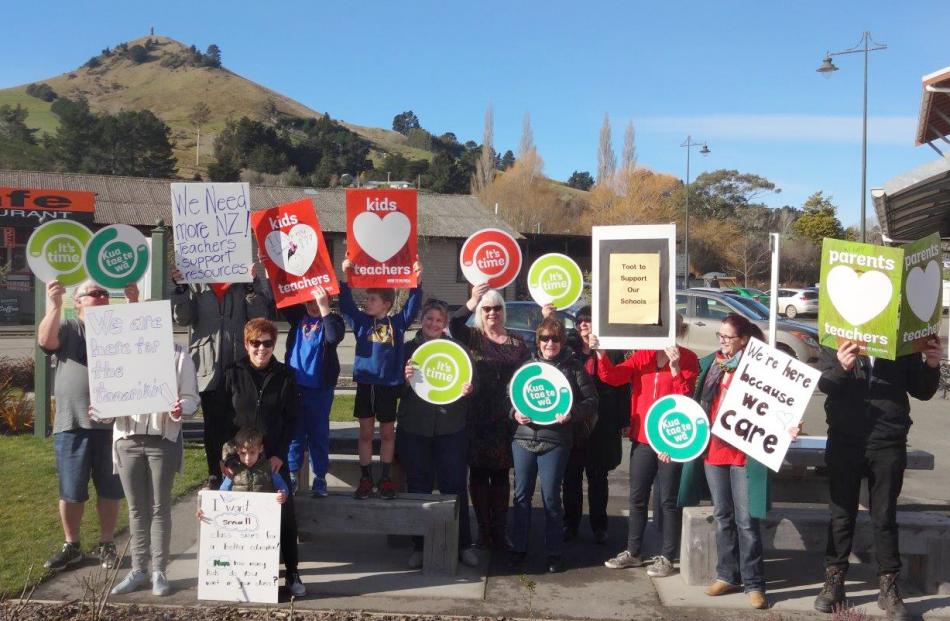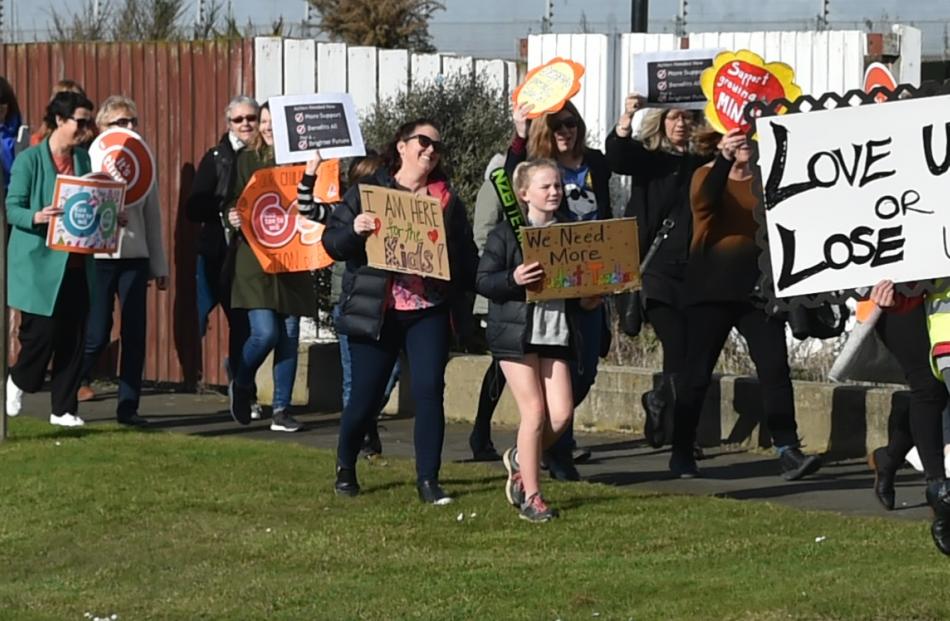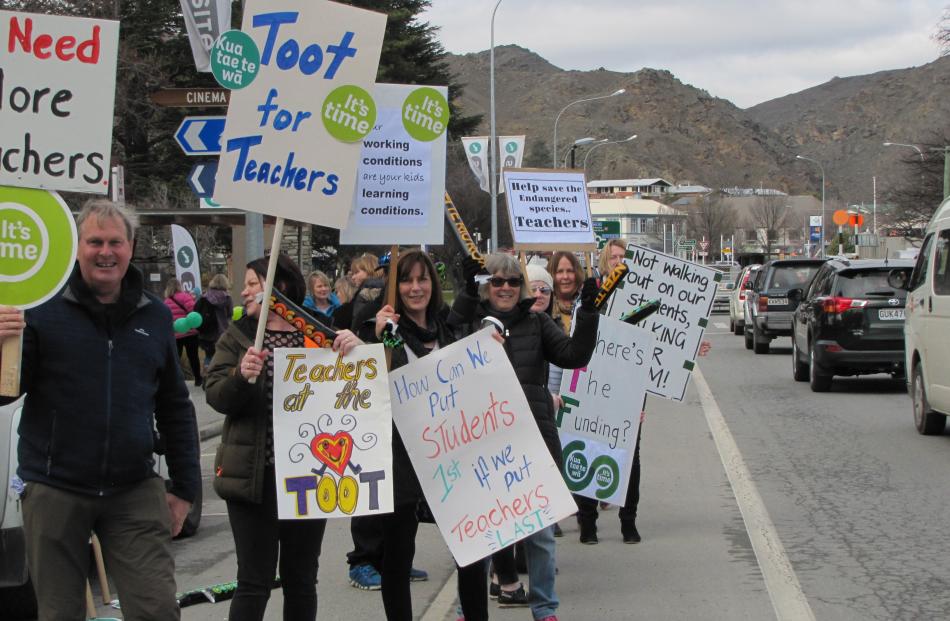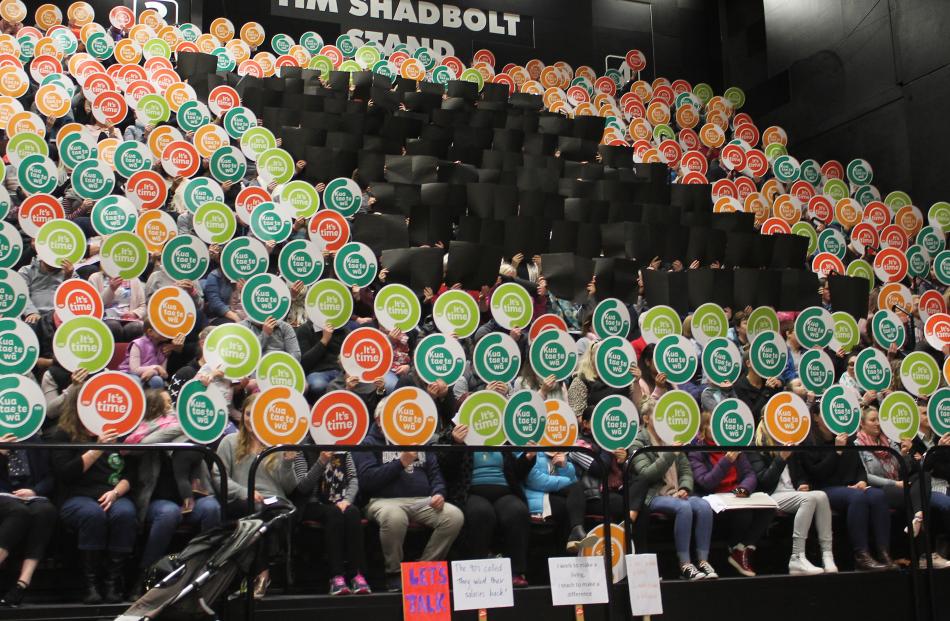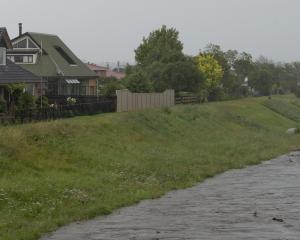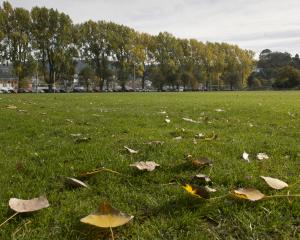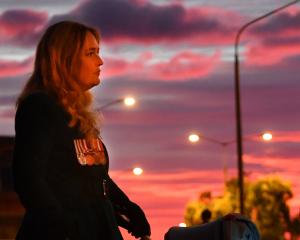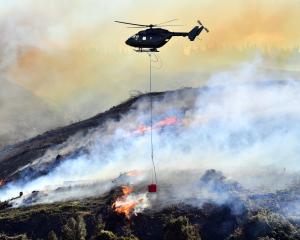Primary teachers are looking for a new offer from the Government to stave off a potential two-day strike after a first strike yesterday closed at least 76% of primary and intermediate schools, according to the Ministry of Education.
New Zealand Educational Institute lead negotiator Liam Rutherford said the union was willing to negotiate when it meets Ministry of Education officials again on Thursday and Friday next week, but it expected the ministry to give some ground.
‘‘It’s the job of the ministry to bring an offer that they think is going to be addressing our issues to the table.
‘‘We are going to be hoping that the effect of having 30,000 teachers and parents in support out on the street will have led to some movement,’’ Mr Rutherford said.
It drew thousands of teachers and supporters to protests from Kaitaia to Invercargill.
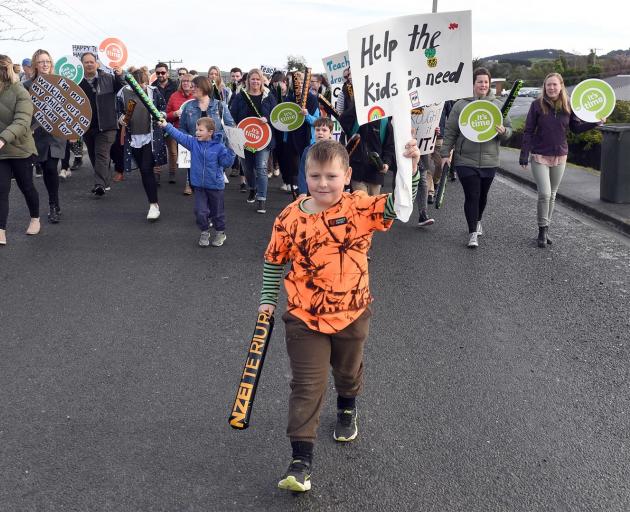
Only a handful chose regional strikes.
Prime Minister Jacinda Ardern unexpectedly spoke to marchers outside Parliament in Wellington, placing herself on the same side as the teachers.
‘‘There is no you and us,’’ she declared.
‘‘There is only us, and if there is only us that means we have to tackle every challenge that you have raised.’’
But she told Stuff teachers had gone on strike too soon, after the Education Ministry’s first offer of pay increases of 6.1% over three years for most teachers.
‘‘When you compare where we were with the nurses ... there were four offers in total before they made that decision.
‘‘In this case there has been one, so I think there were still conversations to be had,’’ she said.
About 1500 primary and intermediate teachers, including principals, who belong to the NZEI walked out of classrooms across the South yesterday to take part in their first strike for 24 years.
They were joined by about 29,000 others across the country.
About 180 schools in Otago and Southland and thousands of pupils were affected by the strike.
More strikes are possible - including a two-day one - if the next round of talks with the Ministry of Education fails.
Negotiations are scheduled to resume next week.
The union wants a 16% pay rise over two years, special education co-ordinators in every school, and smaller class sizes.
Marches and rallies in support of the strike were held in Dunedin, Invercargill, Queenstown, Gore, Wanaka, Balclutha, Alexandra, Oamaru and Palmerston.
Opoho School teacher Sandor Toth led a chanting 500-strong march down Portsmouth Dr in Dunedin. Many motorists used their horns to show support for the teachers' cause.
Mr Toth, a teacher for three years, said the increasing stress of the job had made him consider quitting the profession more than once.
''The burnout is insane, the workload is extreme and we need help, which is why we're here today, because we actually need help.''
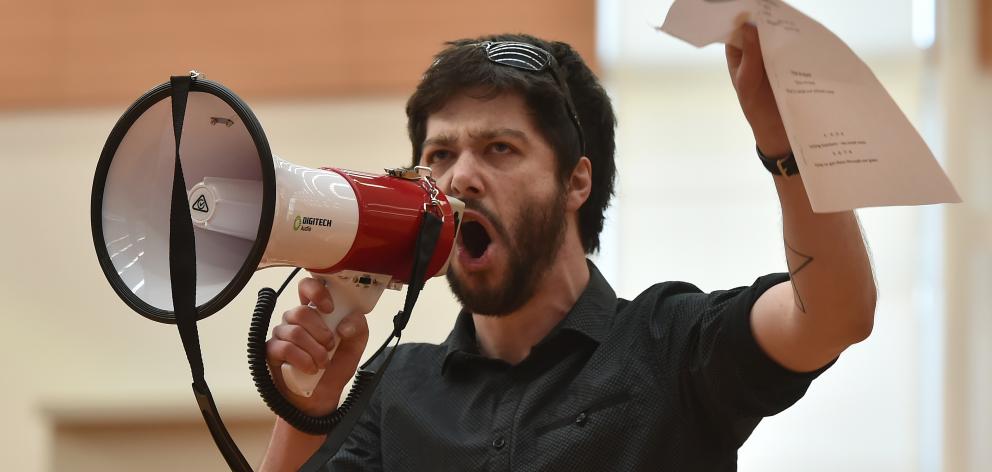
There would be more strikes if the Government did not listen to the teachers, she said.
''This is really about the children because, just like parents, we care about their futures and what's best for them, and at the moment we are struggling with class sizes and young people leaving.''
Earlier, teachers had gathered at the Edgar Centre where they were asked if they supported a series of rolling strikes, or a two-day strike, if negotiations failed.
The crowd cheered loudly for both choices and also another option of working only four-hour days, put forward by a teacher in the crowd.
There were similar reactions at other rallies.
In Invercargill, more than 400 teachers gathered at Stadium Southland.
Donovan Park Primary School principal Peter Hopwood said he was amazed by the turnout. ''This tells me that everybody's on board. Everybody thinks this is an issue and everybody wants it sorted.''
About 80 people gathered alongside State Highway 1 in Balclutha.
St Mary's Primary School Balclutha classroom release teacher Lyn Clark said the situation was dire and many young teachers planned to leave if it didn't improve.
''It's no longer seen as a sustainable career. It breaks your heart to see talented young people having to leave to get on.''
More than 100 teachers and supporters marched through Queenstown and Frankton.
St Joseph's principal Trisch Inder said she was proud of the group, and highlighted workload issues and the need for change to support committed teachers in Queenstown.
NZEI representative Suz Little, from Remarkables Primary School, said they were there for their pupils.
''We really feel our kids are not getting a fair deal at the moment, especially with larger class sizes.''
In Oamaru, 133 teachers from 16 North Otago schools marched from Fenwick School down Severn St to Thames St shortly before noon.
Many passing motorists sounded their horns in support.
About 150 adults and children, led by Wanaka Primary School principal Wendy Bamford, marched through the main street of Wanaka, stopping outside the town's Four Square store to deliver a specially written protest song.
In Gore, about 200 people gathered at the trout statue where NZEI Hokonui chairwoman Dana Turnbull told the crowd it was time for teachers to send a strong and clear message to the Government.
Thirteen teachers and supporters lined up in the Palmerston town centre, gaining considerable support from tooting and waving motorists.
In Wellington, the Prime Minister told teachers and principals gathered outside Parliament radical change took time and asked them to work with the Government instead.
Ms Ardern said scrapping National Standards was part of the Government listening to teachers, in what they believed was best for pupils and best for teacher workloads.
- Additional reporting by RNZ



